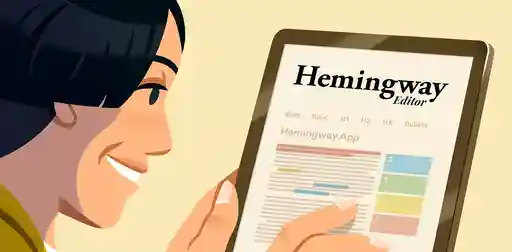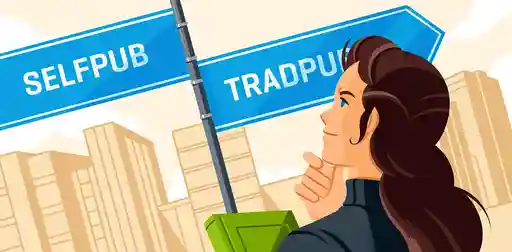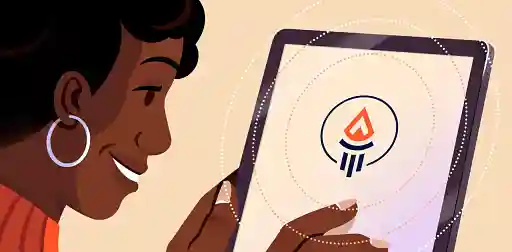Blog • Understanding Publishing
Posted on Mar 24, 2025
How to Make Money Writing in 2025
Loretta Bushell
Loretta is a writer at Reedsy who covers all things craft and publishing. A German-to-English translator, she specializes in content about literary translation and making a living as a freelancer.
View profile →Ricardo Fayet
Reedsy co-founder and Chief Marketing Officer, Ricardo Fayet has worked with hundreds of authors on their launches and marketing campaigns. He is the author of two bestselling guides on marketing for authors, and a regular presenter at the largest writers' conferences.
View profile →Do you fantasize about earning all your money from writing? I’m here to tell you how to make that a reality. Sure, you may not end up as rich as J.K. Rowling, but it’s perfectly possible to make a living writing. After all, I do it!
The secret to making money as a writer is to activate more than one income stream. Most authors, for example, don’t live solely off royalties but supplement their income with other writerly activities. Some of these are directly related to their works, but others aren’t — meaning it’s also possible to make a living writing without ever publishing a book!
Does this sound too good to be true? I promise it’s not. Here are seven ways to monetize your writing skills, along with a (rough) indication of how much money you can make from them:
1. Land a job in content writing
A steady income, regular hours, and a new writing project every day — this is my life as a full-time content writer. If you love learning and appreciate the stability of a 9 to 5 job, this might be the perfect role for you. On a day-to-day basis, you’ll be researching, planning, and writing articles, blog posts, and web content on a range of topics — so you’re constantly discovering new things and, if you’re like me, struggling against the temptation to fall down Wikipedia rabbit holes!
To land an entry-level position in content writing, you’ll need to demonstrate good research and writing skills, even if it’s only through a personal blog or student newspaper. Along with the ability to use your initiative, these are the top qualities we look for in our content marketing interns at Reedsy. We are currently hiring interns to work from home — or you can search job sites for opportunities near you.
Q: What are some effective ways an author can supplement their income outside of book sales?
Suggested answer
If someone tells me that they are set on making their return on investment for a book project off their book sales, I do not work with them. They are delusional. It is almost impossible to make any money - much less pay back the amount of time and energy you invest in a ghostwriter or other collaborators - through book sales alone.
Instead, authors need to think of the book as a leverage point for other business opportunities. You can use the book to secure high profile (and paid) speaking engagements, to connect with new clients, or to general raise the profile of your brand. What you want to achieve with the book depends on your goals, and a premium ghostwriter or collaborator will help you not only produce a great product, but also help you think through how to leverage that stand-out book to get the highest ROI possible.
This is a great resource to learn more about the ROI of a book: https://authorroi.com/
Jeff is available to hire on Reedsy ⏺
For most authors, income from book sales should never be regarded as the mainstay of their earnings.
Royalties are modest at best and tend to arrive infrequently.
On a book that retails at £19.99, the average royalty for a traditionally published author is around 7.5 percent, which works out at roughly £1.50 per copy sold.
That’s before you consider that many publishers calculate royalties not on the cover price but on what they actually receive from retailers, which reduces the amount further.
Payments are often made only once or twice a year and, if you’ve been given an advance, you won’t see a penny in royalties until that advance has been earnt on sales.
All of this means that unless you’re selling in the tens of thousands, book royalties are not a reliable or regular source of income. Instead, most working writers sustain themselves by making use of their skills across a wide range of outlets. Blogging, feature writing, journalism and copywriting all offer more predictable fees, whether paid per article or on a retainer basis. Editing and proofreading services can provide steady work too, paid per project, per word, or by the hour, while ghostwriting, though variable, can be highly lucrative when the projects come in.
Teaching is another avenue. Writers often run workshops, lead community groups, or teach courses at schools, universities or online, all of which provide session fees that are far more consistent than royalties.
More modern approaches include producing digital content such as podcasts, online courses, or subscription newsletters via platforms like Substack or Patreon, which allow writers to build a community of supporters and enjoy regular income.
Even library lending can add a little extra through the UK’s Public Lending Right scheme, which pays authors each time their books are borrowed.
In the end, the crucial point is that being a writer opens the door to an enormous range of possibilities beyond the narrow lane of book royalties. You may have written a novel, but your skills can just as easily be applied to commercial copy, specialist features, editorial support, or teaching. Diversifying in this way not only brings in the stability you need to keep writing but also broadens your craft and strengthens your voice.
And yet, despite all this, books remain the heart of why most of us write. A novel or memoir may never pay the bills on its own, but it is where the art and joy of creativity truly lie. Approaching book writing as a passion first, rather than as a financial lifeline, allows you to create with freedom and authenticity.
The income you make elsewhere keeps you afloat, but the books you write remain the truest expression of your voice and imagination-and play a vital part in developing you as a writer until you reach a place where a book may make all the difference.
I wish you every joy and success.
Edward is available to hire on Reedsy ⏺
How much will you get paid? According to Payscale, entry-level content writers in the US can expect to earn at least $30k per year, while the average salary across all US content writers is $56k.
2. Find freelance writing gigs
If you value more flexible working conditions (and you’re not afraid of self-employed taxes!), you might want to become a freelance writer instead — or as well! In addition to working for Reedsy, I’m also a freelance German-to-English translator, which brings me the best of both worlds: a guaranteed base income and the freedom to pick and choose translation projects I’m really passionate about.
It’s not just me who lives this double life! My colleague Rebecca, for example, is a marketer as well as the author of two books. Many of the ghostwriters on our marketplace are authors too, and book coaches double up as ghostwriters or editors. Multiple income streams don’t just increase your earnings — they also make for a more fulfilling career.
Speaking of variety, there’s a whole host of diverse opportunities for freelance writers. In addition to content writing, you can try your hand at copywriting — crafting persuasive promotional material for marketing purposes. In fact, you can write almost anything you want: instruction manuals, business reports, speeches, and newspaper columns are just a handful of things that are often outsourced to freelancers.
Depending on the format and subject area, you can expect to earn $0.10-$0.15 per word at the beginning of your career. Of course, if you’re already an established writer when you take up freelancing, you’ll be able to charge more.
To kick off your freelance career, you’ll need a portfolio, basic business skills, and a good dose of patience. It takes time to earn a name for yourself, but once you have regular clients and a few strong testimonials, you can reap the benefits of setting your own working hours, processes, and even rates.
Here’s how you can find those initial clients and build your reputation:
Create an account on freelancer platforms
There are many websites where you can apply for freelance writing opportunities. Some of these have stricter acceptance criteria than others — and some of them (e.g., Upwork, Freelancer.com) offer notoriously low rates of pay.
However, as you build experience and collect testimonials from satisfied clients, you’ll be able to set higher rates and access jobs on more prestigious platforms, like Contently and ProBlogger.
Network directly with clients and colleagues
You won’t find the most prestigious jobs on any freelancer platform. High-end clients are more likely to hire writers based on word-of-mouth referrals. Therefore, it can be worth taking the time to grow your professional network and remain active on social media channels.
For my translation business, I use LinkedIn to build relationships with other translators and clients. Even though I cringe at my own posts, they have led to new professional relationships and subsequently to paid work.
My first LinkedIn post was the most cringe of all — but it reached thousands of people and got me my first interesting project: a new contact had been asked to translate some press releases for a Berlin theater, but didn’t have time to do it herself and passed the work on to me.
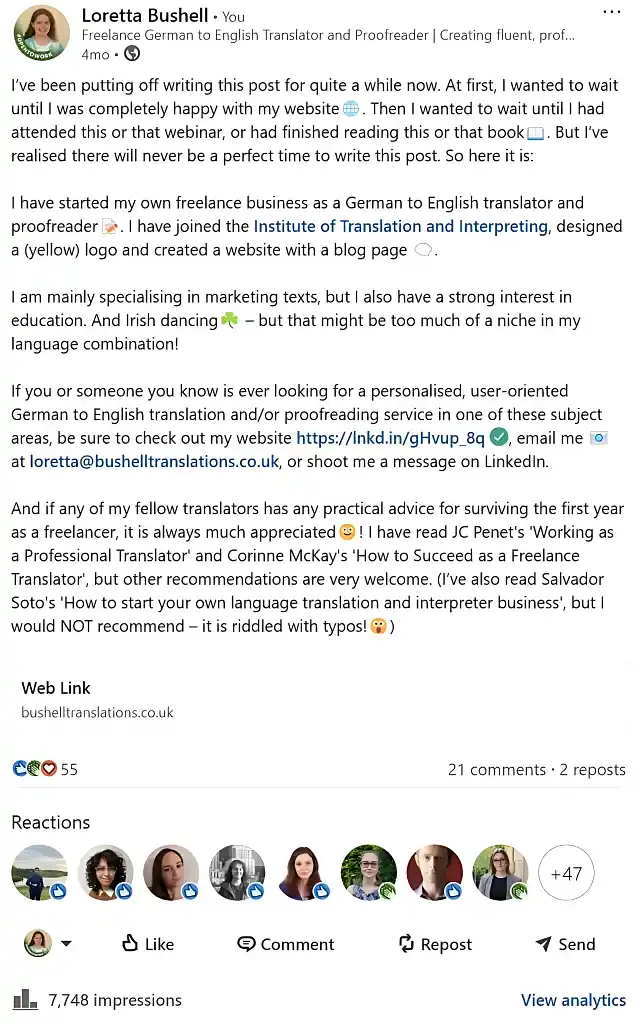
Here are my top two tips for networking on LinkedIn:
- ❓Ask a question at the bottom of your posts. Not only do you learn from other people’s answers, but their comments will appear in their network’s feeds, so it exposes your post to more people.
- 💬 Comment on other people’s posts regularly. Try to comment on influential freelancers’ posts so that people in your industry get used to seeing your name. Eventually, they might decide it’s worth adding you as a connection.
Pitch guest posts to magazines and blogs
If you're looking to build up your writing portfolio, you can also pitch ideas for articles directly to magazines, blogs, etc. that interest you. Usually, this involves sending an email or filling out a form on their website.
Q: What are the most effective ways for authors to begin monetizing their writing, particularly in the early stages of their career?
Suggested answer
At the beginning of your writing career, the best way to turn a profit is to be thoughtful and innovative when looking at your work.
Many new writers begin with self-publishing novellas or ebooks, which are inexpensive to produce and can be distributed to readers in rapid order.
Platforms like Smashwords or Kindle Direct Publishing permit the earning of royalties as well as developing a reader base.
Short stories appearing in literary magazines, anthologies, or contest publications also generate income and exposure.
Besides publishing, the majority of authors offer ancillary services—blogging, freelance, or ghostwriting—to generate a reliable flow of income and hone their writing skills.
Achievement in the beginning more likely comes from stability, reader engagement, and smart marketing: building a mailing list, establishing an internet presence, and cooperating with specialty communities relevant to your genre.
Money-making is never instant, but every action generates momentum toward a lucrative writing career.
John is available to hire on Reedsy ⏺
Take advantage of every single opportunity that comes your way in the beginning. Don't be too picky. If the front door is locked, go in the side door. Or find a window. I had great luck with blind queries in the beginning and that was before email, kids. I built many relationships that way, and most of all, keep believing in your talent, be agile, be diligent, and above all LEARN HOW TO SELL YOURSELF.
Bev is available to hire on Reedsy ⏺
If you are a non-fiction author you can use your book as a platform to get speaking engagements even before your book is published. Once it is published, ask the business you are speaking for to purchase books for each of the conference attendees and then include this purchase in your speaking "package."
Melody is available to hire on Reedsy ⏺
If by "best," we mean "fastest," then self-publishing is the way to go, since there're no gatekeepers, meaning no wait time. As soon as your book's done, you can get it up for sale. But if we mean best as in "long-term for your career," that becomes a fuzzier proposition because you need to weight the wait time, rejection, potential rewrites/edits, and possibility of never having something accepted inherent in traditional publishing against the prestige that still comes with making it into that world. It also depends what level of control you want for your work. You obviously get much more with self-publishing, but perhaps you'd benefit from the edit you might get from an editor at a legacy press. Lots of variables here, but my advice is always to be honest with yourself regarding your goals.
Legacy prestige is great and all—and, if it goes well, can be much more lucrative—but there's a lot to be said for having full control of your product.
Brett is available to hire on Reedsy ⏺
To increase your chance of getting a response, make sure you:
- Address the editor by name.
- Show that you have researched the specific publication or website.
- Highlight why you’re the best person to write the article(s).
- Send multiple pitches, so you have a better chance of getting a “yes”.
You can attach an outline or a sample of your writing, but don’t write a full article until you receive the go-ahead from the editor.
3. Monetize your blog or newsletter
If you want the freedom to decide for yourself what is and isn’t worth publishing, you can start your own blog or newsletter, where you will retain full creative control. This is a good way to bulk out your writing portfolio and keep yourself at the top of people’s minds. Again, LinkedIn is an excellent platform to share your work on — but also Instagram and other social media networks.
Once you’re confident there’s an audience out there who will pay for your content, you can directly monetize your blog or newsletter by charging a subscription fee on Substack or Patreon. If you have 100 subscribers on Substack, each paying $5 per month, your monthly income will be $406 after the site's fees. Of course, you’ll have to make sure you maintain the quality and frequency of posts that you promise your subscribers.
Q: What website builders and hosting services do you recommend for authors looking to create a professional author website?
Suggested answer
This is not a one-size-fits-all answer. Many factors go into choosing the right platform for your website. However, to answer the question straight:
- For complete control, I use and recommended WordPress + Avada on WP Engine. Alternatives to this could be WordPress + Elementor or WordPress + Divi on another host that specialized in WordPress, aka Managed WordPress hosting. (Avoid GoDaddy for anything but domain names.)
- If you want more out-of-the-box but less control, you can go with a DIY builder like Squarespace or WIX. These are capable of handle most features authors needs.
- I advise against Weebly, as they have fallen behind.
Every web designer has an opinion on this, but the truth is, if we're talking about standard author websites, most website/web design platforms and hosts are capable of achieving what's necessary. It comes down to the designer and their mastery of the platform chosen. The bottom line is:
- Is it mobile friendly?
- Is it SEO friendly?
- Does it load fast?
Besides that, deciding factors can include:
- How much customization do you require?
- How much of "web design basics" do you want to learn to maintain the content? Because no matter what, any DIY or drag-and-drop builder is going to have a learning curve for anyone unfamiliar with web design.
- How much do you want to pay monthly/annually?
This is a brief introduction on choose a website platform and host. There's a lot that goes into choosing, but don't over think it. They can all get the job done, as long as you have the right person at the helm.
Chad is available to hire on Reedsy ⏺
Let's start with the "big three": WordPress, Squarespace, and Wix. Each has its own pros and cons. I'd start with identifying the goal of your website, the complexity of your design, and your comfort level.
WordPress
With countless themes and plugins to choose from, WordPress allows for almost limitless design, but this comes at a cost as plugins and themes must be updated regularly.
I recommend the free Astra theme and Elementor with an upgrade to the Pro version. This mimics the feel of the Squarespace and Wix interface, but with so many more capabilities. If mobile first is your goal, this is a great choice as you can create an entirely different experience.
There is no built-in function for SEO, but there are countless plugins to choose from. I typically use Yoast SEO.
Your WordPress site is only as good as your host provider. Be cautious about what may seem like a bargain. Companies like GoDaddy and Bluehost seem less expensive but don't include backups, added security, SSL, etc. The add-ons can add up.
I recommend that all of my WordPress clients choose WP Engine. They offer a daily backup, a staging environment for future updates/design. They also offer an add-on "Smart Plugin Manager" that keeps everything up to date and will restore from a backup if there's ever an issue (cost $100 annually).
Squarespace
Squarespace is a great choice for authors' sites. The user interface is drag-and-drop, and most clients find it easy to self-manage and make changes going forward.
Need a blog, a store, or a scheduling tool? Interested in custom merch, forms, social media feeds, and links? No problem, it's all built in and ready for you when needed.
The downside of Squarespace is site speed, and though you can customize on mobile, it is somewhat restrictive.
Squarespace covers the basics for SEO: H1, SEO descriptions and titles, alt-text, etc. There is a free (or paid) Chrome extension called SEO Space that is a game-changer for Squarespace's SEO. If you choose Squarespace, I HIGHLY recommend this tool!
Wix
I have a love-hate relationship with Wix. It shares a similar drag-and-drop design tool and a variety of pre-built sections and components, which can help jumpstart your creativity.
Unlike other web building tools, it allows you to draw way outside the lines, meaning there are no restrictions to brand guidelines, so you can choose as many fonts and colors as you like. This can lead to style overload, and why I often get hired to clean up Wix sites.
Wix allows for customization on mobile. More so than Squarespace, less so than WordPress/Elementor.
The biggest advantage to Wix, as I see it, is the built-in SEO tool. In my experience, Wix sites tend to show up on search engines more quickly if you follow their guidelines. They are also the only platform that attempts to address ADAA compliance issues.
Summary
Understand your priorities and find a tool that you enjoy working with that best meets your needs.
Sharon is available to hire on Reedsy ⏺
This all depends on what backend you're most comfortable with. Youtube has some great video tutorials for Wordpress/Squarespace/Wix, which will offer an overview of what it's like to create or update a page. That's where I'd start, as you want something that's easy for you to update.
Self-hosted Wordpress will give you the most control. This is especially important if you have 5+ books. Some designers can offer automation—meaning they can set the site up so you only have to add a new book page and the book's cover/info automatically appear everywhere it needs to across the site. (Double check with your designer to make sure they offer this.) Which is great if you have a long series or multiple books.
However, Wordpress doesn't have a default visual editor. (Some plugins/themes offer visual editing with mixed results.) Most hosting options are solid—look for free SSL, and if there's a limit on emails addresses or domain names/sites. Space is nice, but most sites don't hit 2gb (unless there are multiple sites and a separate store). 5gb is usually more than enough. It's nice to have the option for multiple sites, in case you want to have a separate store later (or a separate site for a pen name).
For specific host recommendations, I've had good luck with Hostgator, SiteGround, MDDHosting, and Inmotion. While Bluehost is often recommended online, it's been very slow this year (2024) especially for the price. I've heard good things about Cloudways, Hostinger, and A2 Hosting. Wordpress.com is also viable with their business plan, though it won't give you as much control as a standard host.
For page builders (visual editors), I tend to recommend Squarespace over Wix, as I find Squarespace more intuitive since Wix's update (introducing Studio) this past spring (2024). Page builders offer no automation, which means adding a new book can be a laborious process depending on where you want the book's info to appear. For example, if you only want the cover on the book page and the home page, that's only two pages to update. If you have a series and want each book in the series to have a "read more" section with the other books in the series, then you have to update the cover manually on each of the series' book pages. Not a big deal for a small library, but rather a pain for a larger one.
At baseline though, start with YouTube. Skim tutorials on what it's like to create/update a page on the platform you're interested in. This will give you a better sense of how the platforms operate. Whatever is easiest for you to operate is (almost) always the best option.
Tessa is available to hire on Reedsy ⏺
If, like me, you don’t have enough time to put that level of effort into your blog on top of all your other income streams, you can keep it free to users and still earn some money (admittedly not a lot) in other ways:
- 🎁 Offer bonus paid content. Instead of a subscription, offer readers valuable additional content such as “bonus” blog posts that are lengthier or more personal, video tutorials, one-on-one consultations, etc. for a one-time payment. Your blog or website host may have the option to create a store where you can sell these products, or you can set up an account on Gumroad, Payhill, or Sellfy.
- 🔗 Promote affiliate links. Include affiliate links to products or services in your content and receive a commission (typically 5-30% of the sale price) for each reader that clicks through and makes a purchase. You can join large affiliate programs like Amazon, Etsy, Shopify, etc., but you can also reach out to local businesses or SMEs that sell highly relevant products or services.
- ⚖️ Get paid to review products from sponsors. This is a good moneymaker once you have a large enough following in a certain niche. If you do land sponsorships, it’s essential to be honest about the positives and negatives of the products you review; otherwise, the insincerity will come across to readers and damage your reputation! One way to avoid this is to mainly seek sponsorship from companies you already believe in, rather than letting random companies come to you.
It’s also possible to sign up to an ad network and receive a few cents for each user that clicks on an advert — but I wouldn’t actually recommend it. People click on ads less and less these days, and they’re honestly quite annoying, so the small amount of income is rarely worth the sacrifices to the user experience.
4. Write your own books
It’s a big step up from writing a blog to authoring full-length books, but it’s one of those things that you’ll regret not doing if it’s always been a dream of yours.
The emotional reward of publishing a book is of course priceless, but let’s talk about the financial return. How much money you’ll make as an author depends not only on the success of your books, but also on whether you choose to self-publish or go through a traditional publisher.
Q: Assuming a book deal, how long can an author assume the process will take from querying to seeing their book on the shelf?
Suggested answer
Having been an acquisitions editor for a division of Random House, I can tell you publishing is a marathon, not a sprint. On average, the journey from query to bookstore shelves is about two years. That might sound like forever, but every step along the way has its own milestone worth celebrating.
Here’s what it looks like:
- A Spark. An editor loves your query! Cue the happy dance. They’ll ask for more—maybe a full proposal, sample chapters, or even the whole manuscript if it’s fiction.
- The Back-and-Forth. This is the “let’s make it even better” stage. You might be asked for clarifications or revisions before your project goes to the publication board. Think of it as a friendly brainstorming session with high stakes.
- The Green Light! Once the pub board approves, a contract is drawn up. Negotiations and signatures can take 2–3 months. Then it's official and you can make announcements in public.
- The Writing Zone. You’ll usually get around six months to deliver your manuscript. This is when the real writing (or rewriting) magic happens.
- The Editorial Polish. Once you submit your manuscript, your editor helps refine your work. Developmental edits, line edits, copyedits… it’s like giving your manuscript a deep massage. This adds another 2–3 months.
- The Final Stretch. Your book is typeset, proofread, and sent to print. Depending on where it’s printed, this can take another couple of months.
- Meanwhile, the sales and marketing teams are busy building buzz, and you are stirring up excitement with pre-sales posts.
So yes—it’s a two-year adventure. But the good news? That “long runway” gives publishers time to rally booksellers, reviewers, and readers, so when your book finally launches, it’s not just quietly slipping onto a shelf or into the Amazon masses, it’s arriving with fanfare. Publishing is a process of patience, persistence, and plenty of celebratory moments along the way.
Alice is available to hire on Reedsy ⏺
Querying is the first step of a journey through traditional publishing. After you've sent out your queries, the next steps might look something like this:
- Full requests: Literary agents who are interested in your query will request the full manuscript from you so they can read the whole book and decide whether to offer representation.
- Offer of representation: After reading your book, the literary agent has decided they would like to represent you and take you on as a client, so they send you an offer of representation. This is a good time to follow up with any other pending queries and let them know that you've received an offer of representation. Generally, you should give other agents 2 weeks to get back to you after you've let them know you've received a competing offer of representation.
- Submissions: Once you've signed with a literary agent, your agent goes out with your manuscript on submission. This might happen right away (if your agent believes your manuscript is ready) or after a round or two of revisions. The amount of time this might take varies greatly.
- Editor interest: Editors who are interested in your book may have to drum up internal support at their publishing house before they can make an offer. This could look like the editor bringing the project to their editorial meeting, then presenting it at an acquisitions meeting. This could take up to 2 weeks depending on the process at that particular publishing house. You may have a call with the editor as well to make sure your visions are compatible.
- Book deal offer: Your prospective editor will send an offer to your agent, and they will negotiate.
- Editing begins: Once you've come to an agreement on the book deal, you will begin working with your editor. All in all, it generally takes about 2 years between a book deal and the book's publication date. This looks like about 1 year of editing and revising, and then 6 months of the book moving through different stages of production, and then it goes out to the printer, is physically produced, and ships to distributors, who then sell to booksellers, who then stock the book.
Of course, the timelines for the items I've listed here vary greatly. But generally speaking, it's safe to assume at least 2 years between book deal and publication...plus the amount of time you've had between querying and getting that book deal. This is part of the reason I encourage authors not to chase trends and instead to focus on writing compelling characters—traditional publishing is slow, so write from the heart. Strong character work and a good command of craft will appeal regardless of the shifting trend cycles.
Christine is available to hire on Reedsy ⏺
Allow a publisher's editorial board 30 - 60 days to finalize an offer and negotiate details. After that, expect 8 to 16 months before your cover sees the light of day. Why so long? Legitimate publishers allocate marketing and trade sales resources on their calendar. They also sometime like to schedule titles based on best selling seasons for a particular genre.
Mike is available to hire on Reedsy ⏺
Both have their pros and cons, but self-publishing tends to be more profitable because you get to keep a higher percentage of the royalties.
|
Self-published authors |
|
|
Small press authors |
|
|
Big 5 authors |
|
*Self-publishing figures based on Amazon KDP royalties.
It can be difficult to accurately predict how many copies you will sell, but there are definitely a few ways to maximize your earning potential — which I’ll cover below.
Write something marketable
If you’re writing as a hobby, you can write anything you like — but if you’re writing to make a living, you need to ensure there is an audience for your ideas. Research current trends in your genre and tailor your books to meet the target audience’s basic expectations.
Q: Should I follow current trends or write the story I’m most passionate about?
Suggested answer
If you write a book inspired by 2025 trends you might find that by the time it's ready for submission and even publication the trend has moved on to something new. It takes a long time to write a book: you have a better chance of sustaining momentum and enthusiasm if you stick to your passion project. I rather believe that readers pick up on that passion too.
Susanna is available to hire on Reedsy ⏺
The issue with following current trends is that the trend may be over before you get your book completed and out to the world. If you write what you are passionate about, the story will usually end up being stronger because you are writing a story that means a lot to you, as opposed to writing something just because you think it might sell.
However, you want to be sure the story you are passionate about still has a strong possibility of selling by avoiding cliches and plots that have been overworked and overdone.
Strong stories that readers can relate to will have a good chance of finding an audience no matter the genre.
Melody is available to hire on Reedsy ⏺
This includes length and plot, but also quality. If you go down the self-publishing route, it’s still essential to work with an experienced editor who knows the ins and outs of the industry and can look at your manuscript from an unbiased perspective. Likewise, a professional book cover can bring in twice as many sales as an amateur one.
Hire an expert
Rosie W.
Available to hire
A conscientious and enthusiastic indexer, my subject specialisms are Geography, Environmental/Earth Science, Social Science and Economics.
Eva Maria D.
Available to hire
Multilingual editor (EN, ES, DE, FR, IT) turning drafts into publishing gems — guiding authors to self or traditional publishing success.
P. J. H.
Available to hire
Professional editor w/ 17 years experience. Love sci-fi/fantasy! Best-selling/award-winning author of 50+ books. Let's make your book shine!
Write in series
One of the best ways to sell more books is to write a series. For fiction, end the first book on a cliffhanger so that readers will want to buy the sequel — but aim to release it within a year and a half so they don’t forget what happened or lose enthusiasm for your story!
For nonfiction, a sequel could expand further on a topic or talk about the natural next step in a process. Stephen Covey followed his first book, The 7 Habits of Highly Effective People, with the natural next step: The 8th Habit: From Effectiveness to Greatness. Likewise, Simon Sinek’s first book is called, Start with Why: How Great Leaders Inspire Everyone to Take Action and his second book focuses in more detail on how to foster teamwork: Leaders Eat Last: Why Some Teams Pull Together and Others Don't.
When the latest installment in a series does come out, consider discounting the preceding books — or even making the first book free — to encourage new readers to give the series a go.
Publish your books in multiple formats
To increase sales, you want as many people as possible to have access to your books. Therefore you’ll want to offer them in print and e-book formats, and release them in multiple regions. To increase the chance of success in another country, you may wish to get your books “localized” to suit the new market.
💡Fun fact: British author Emma Jane Unsworth’s novel Adults was published as Grown Ups in the USA. Clearly, her publishers thought the difference mattered!
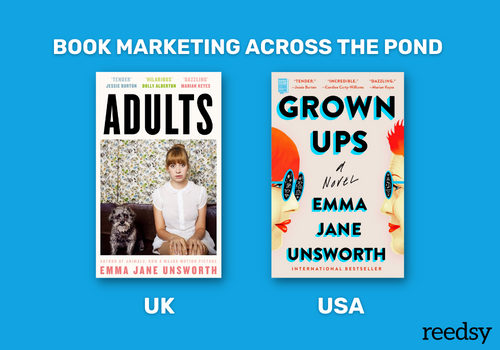
If one of your books is particularly successful, you could even pay to have it turned into an audiobook or translated into another language to reach even more readers.
Actively cultivate your fanbase
More fans = more sales of your next book. But “just” writing good books sadly isn’t enough to consolidate a fanbase. To keep yourself at the top of readers’ minds, you need to treat your books like a business. Build a strong online presence and make use of an author mailing list to continuously engage with fans.

FREE COURSE
How to Build Your Author Mailing List
Learn how to connect with your audience and sell more books with email.
5. Offer speaking engagements
Another way to connect with fans is in-person at speaking engagements. You might talk about your latest book at a store or library, give a writing workshop at a school or university, or even talk about your specialist subject area at a larger conference. In all of these cases, you can hype up your books and get your name out there — and if you’re lucky, make some money too.
💡Top tip: Create a free QR code online that links to your author website or mailing list and print it out on business cards to hand out to attendees.
Unfortunately, not all engagements are paid, but if you’re speaking at a larger event or one that aims to make a profit, you should always negotiate a fee — as a guide, the UK’s Society of Authors pays their speakers £300 ($388) for 90 minutes or £450 ($580) for 3 hours.
Even if you aren’t getting paid, make sure there’s something in it for you. Maybe you get access to the email addresses of those who sign up, or you’re allowed to sell your books to the attendees.
The more successful talks you give, the more likely you are to be hired by larger organizations that can afford to pay significant sums. For your first engagements, don’t wait to be asked; get in touch with local libraries, schools, festivals etc. to let them know you’re available. Then, publicize these events online, if possible with a quote from the organizer saying what a pleasure it was to have you.
You can also advertise your availability for engagements by adding a short line to your author website and email footer: “For speaking inquiries, contact me at [email address].”
6. Ghostwrite other people’s books
If fame (however localized) isn’t for you, you can always turn to ghostwriting. This is a lucrative job opportunity in which you write someone else’s book for them without getting any credit — in fact, you will usually have to sign a Non-Disclosure Agreement.
To become a ghostwriter, you’ll typically need a strong portfolio of credited work, either your own published books or an impressive background in freelance writing.
If you can prove you have the necessary skills and you’re willing to remain anonymous, you can earn tens of thousands of dollars per book! Specifically, the ghostwriters on Reedsy make about $0.35 per word on average — rising to $0.60 for nonfiction works.
|
Genre |
Average cost |
Average Word count |
Per word |
|
Action & Adventure |
$17,500 |
70k |
$0.25 |
|
Biographies & Memoirs |
$30,000 |
75K |
$0.40 |
|
Business & Management |
$33,000 |
60K |
$0.55 |
|
Contemporary fiction |
$28,000 |
70k |
$0.40 |
|
Fantasy |
$13,500 |
90K |
$0.15 |
|
Historical fiction |
$20,000 |
80k |
$0.25 |
|
Literary fiction |
$48,000 |
80k |
$0.60 |
|
Mystery & Crime |
$19,000 |
75k |
$0.25 |
|
Nonfiction (general) |
$48,000 |
80k |
$0.60 |
|
Romance |
$16,000 |
80k |
$0.20 |
|
Science Fiction |
$18,000 |
90K |
$0.20 |
|
Thriller & Suspense |
$22,500 |
90k |
$0.25 |
|
Women's Fiction |
$43,000 |
95k |
$0.45 |
|
Young Adult |
$15,000 |
60k |
$0.25 |
Q: What costs must ghostwriters consider when pricing a project?
Suggested answer
It took me awhile to decide on my rates when I began ghostwriting. Here are the costs and tother things I took into consideration.
- How many hours on average does it take you to write a novel from start to finish? Assuming you’ve written a few books, take a few minutes and do some math and figure out how long each one took you. If you aren’t the type to track your daily work, that’s fine: I’m sure you can still get a solid estimate here. How many months did it take? Include all the brainstorming and outlining time, not just the drafting. On average, how many hours did you write per day? Come up with a range, at the very least, so you have some numbers to work with.
- What do you consider to be a fair hourly rate? No one can decide this but you (if you've already Googled ghostwriting rates, you know they're all over the place). From there, I suggest using the numbers you figured out in #1 to come up with an average. For example: $75/hour, estimating 35 hours per every 10,000 words, works out to $2,625 per every 10,000 words. You *could* charge by the hour, as in hey, this is $75 per hour until the book is done...but from the client’s perspective, they just won’t have any idea as to what that final total will be, and neither will you! So I think it’s best to use your hourly average to calculate a fee, then base that fee on something more concrete like word count or page count.
- This is the trickiest part, and the reason (in my opinion) rates are all over the place. You have to figure out what ghostwriting this book is worth TO YOU. What do I mean by that?
- First, where’s the rest of your money coming from right now? Full time teaching job, freelance copywriting, driving for Uber, pulling shots at Starbucks - when you get your first client and you have to write a book on a deadline, what work are you going to have to cut down on over the next few months, and how much is that going to cost you?
- Second, and this is where we get really speculative: consider the creative work you will put into this book, and consider the fact that someone else will hold the copyright. You are a ghost. You may be credited, but there is no obligation to credit you. You will never receive royalties. This rate is IT.
I suggest that you not be too humble when setting your rates. I think the instinct when we’re first starting out in a new field is to discount our services, to undercut the competition. But when you do that you’re just undercutting yourself. Because you have written books. You might be new to ghostwriting novels, but you aren’t new to writing novels.
I hope that's helpful!
Michelle is available to hire on Reedsy ⏺
I've been ghostwriting through Reedsy for the last four years and off and on before that for clients I met through my own work. For me, there are three primary considerations for fiction:
- How much does the client have written on the novel?
- How much time will it take me to write the book?
- Does the idea intrigue me?
If I find the idea intriguing and the idea is all the client has, I usually propose a synopsis based on the 15 beats of storytelling. It runs around 35 pages and essentially provides a blueprint for writing the novel. I do this synopsis for my own work. It means that halfway through the writing, I won't have to toss out 100 pages because the story no longer works. With a synopsis that outlines the 15 critical beats of a story, the client can then either write the book herself or turn it over to the ghostwriter. The synopsis saves time and ultimately saves the client money.
For non-fiction, the consideration is different. It's helpful if the client presents an outline of the chapters, even if it's rough. If I have to spend hours on zoom with the client to hear a story, the cost is higher.
Sometimes, when a client says they don't have money to cover the price I'm asking, we negotiate. But in the end, the main consideration for me is time. Will it take me two months or six to write the book? When I take on a ghostwriting project, I put my own work on hold and focus on the client's project.
Trish is available to hire on Reedsy ⏺
You can find ghostwriting jobs in a few different ways:
- Write for people you know who have a story to tell, but lack the time or expertise to tell it.
- Market your ghostwriting business through social media pages and/or a website.
- Join The Association of Ghostwriters to network with other professionals and pick up useful tips and contacts.
- Once you’ve built a name for yourself, apply to become a Reedsy ghostwriter.

JOIN REEDSY
Find exciting new projects
We connect publishing professionals with our community of 1,500,000 authors.
💼
Wondering if you're ready to sign up to Reedsy?
Find out here! Takes 1 minute
7. Coach aspiring writers
Another role you can have on the Reedsy marketplace is book coach. Although you aren’t actually writing yourself, book coaching (or writing coaching in general) is an ideal way to monetize your expertise and inspire the next generation of writers. You’ll provide feedback on your mentee’s work, help them improve their writing, and generally share your insights and experiences in the writing industry.
Depending on the level of experience, the book coaches on Reedsy make anywhere from $60 to over $150 per hour — making it the best-paid occupation on this list.
So why aren’t we all book coaches? Two reasons. Firstly, coaching requires a whole new set of skills: communication, empathy, pedagogical skills etc. Just as not all footballers make good managers, not all writers make good writing coaches.
Secondly, you need to already have an excellent reputation as a writer. Professional football teams wouldn’t hire a manager who didn’t have an impressive track record as a player, coach, or assistant. Similarly, you can’t turn to writing coaching until you’ve made a name for yourself as a successful writer. Otherwise, you’ll look like a grifter.
Whether you are already an established author looking to supplement your income or whether you’re a high school graduate researching future job options, I hope this post has shown you that you can turn writing into a full-time career. Now is the time to pursue your dream. Good luck!
